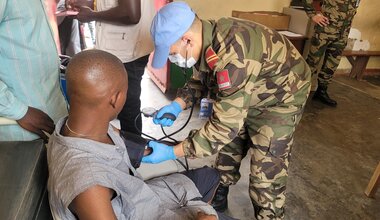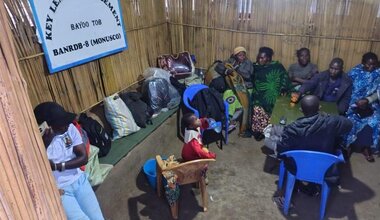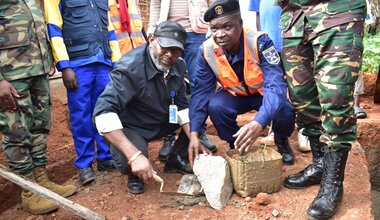BENI : Local communities have received means and equipment for their socio-economic recovery
“We received carpentry training in Mavivi as well as tools such as saws and planers which have been handed over to us today. I'm sure we're going to make a better use of them”, said Muhindo Kiriki Siméon, a vulnerable young man from Mavivi, Beni, North Kivu.
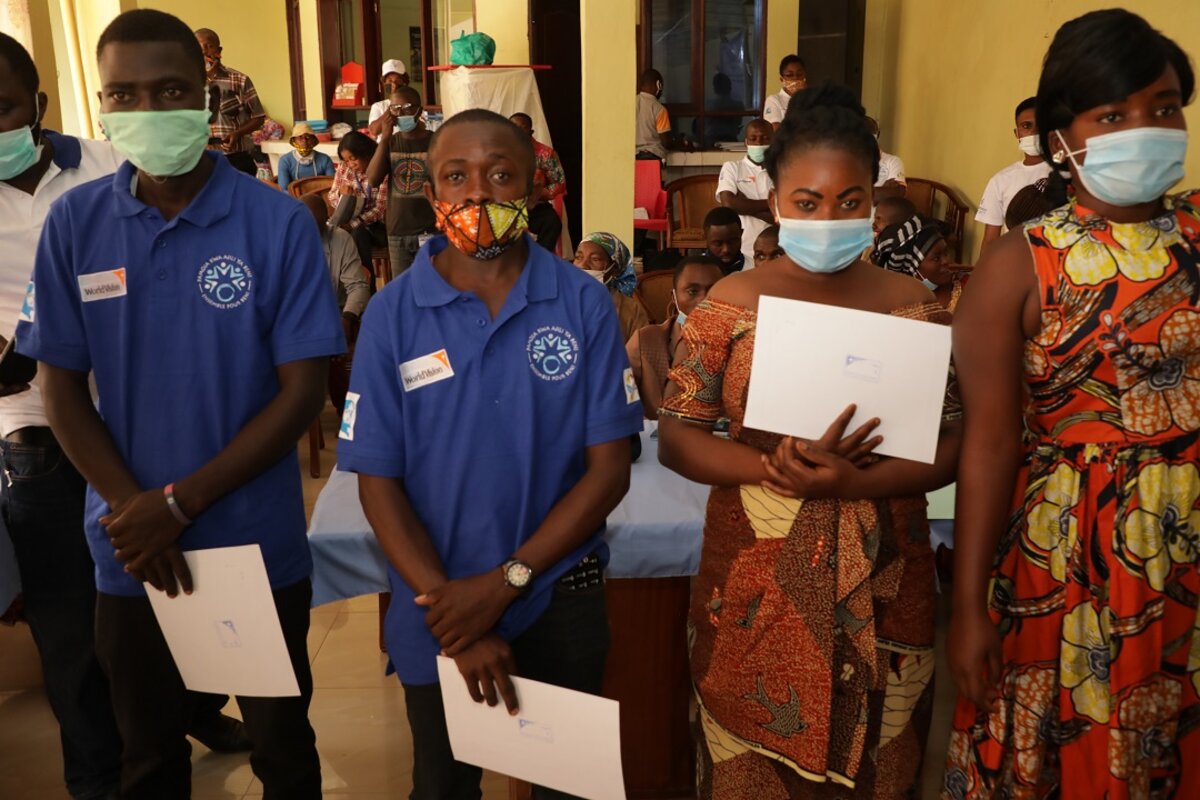
Muhindo Kiriki Siméon is one of the 432 young people, including 242 girls, who have benefited from the socio-economic reintegration projects financed by the international community within the framework of the Program for the stabilization and reconstruction of the areas emerging from armed conflicts (STAREC). Roughly 58 associations made up of 630 vulnerable households are also targeted by these projects which aim at the socio-economic reintegration of the beneficiaries of small integrative projects as part of the overall project referred to as "Together for Beni".
The handover ceremony of the tools and working equipment took place on June 9 in Oicha, the capital of the territory of Beni. Many young people, members of the communities concerned, officials, elected representatives of the territory and various partners of the STAREC program showed up at the symbolic handing over ceremony of the tools and working equipent intended for socio-economic reintegration.
For the “Economic Recovery” pillar, AGR Kits (income-generating activities) were given to vulnerable households while reintegration kits were provided for young people after vocational training in various trades.
Indeed, for these specific projects carried out under the “Democratic Dialogue and Economic Recovery” components, several structures were built. Regarding the Democratic Dialogue component, 4 water sources were set up in the Mavivi area and a peace hut built in Mabalako, all of which in the Beni-Mbau sector.
In Ruwenzori sector, a multipurpose hall was built in Kalunguta, a football field in Nzenga, and finally 3 classrooms, a building for teachers and latrines were built at Masangi Primary School.

The Provincial Minister of Social Affairs, Pelagie Kabalo, who officially handed over these projects to the communities took the opportunity to explain to each and everyone what this could yield in terms of results: “For the rest of the process, we call on the territorial, local and customary authorities as well as the beneficiary communities to capitalize on the achievements of the project Together for Beni”, she declared.
The provincial member of parliament, the elected representative of Beni, Paluku Anselme Kitakya, called on the government and the international community to continue supporting the communities in Beni: “I know that these are laudable projects. I would like on behalf of the population of the territory and city of Beni who voted us as their representatives, to tell you that the need for peace and stability, the need for economic recovery as well as the restoration of the State authority, are still immense, so I am urging the provincial government, its partners and the population of the territory of Beni to keep the momentum which will help them take more actions in favor of our population.’’
MONUSCO Interim Office Chief Essoh Essis stressed that “support to the stabilization project is one of MONUSCO’s strategic priorities; however, this cannot be achieved without involvement of all the institutions, both provincial and national, public and private ". This support will not be possible "without ownership by communities and their representatives," he underscored.
The project Together for Beni was set up in 2018 as part of the STAREC program with the objective of promoting stability and lasting peace, essential to the socio-economic development of the Beni region, which has been plagued by insecurity for several years.
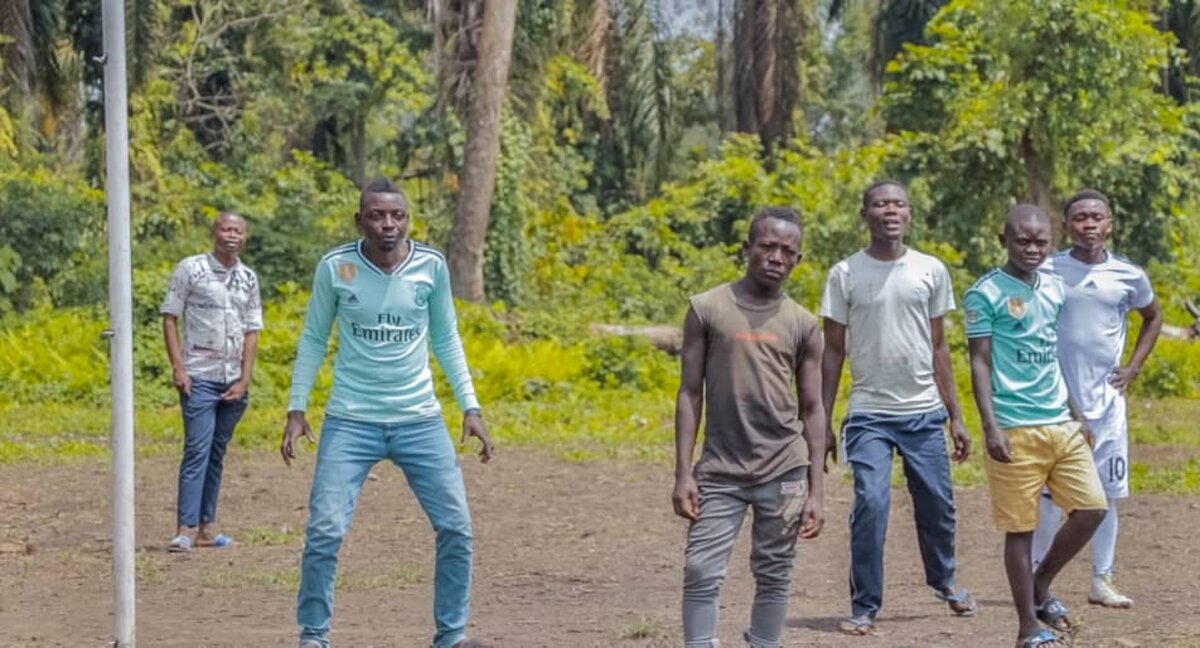
Inaugurated on September 9, the projects were carried out by NGOs and international organizations such as Interpeace, International Organization for Migration (IOM) and the World Vision along with their local partners for an amount of US$ 200,000.
 UN
UN United Nations Peacekeeping
United Nations Peacekeeping




